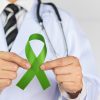Did you know that oesophageal cancer is the 9th leading cause of cancer death among men in Singapore1? Read on as Dr Robert Lim (Senior Consultant, Specialist in Medical Oncology) from Icon Cancer Centre Singapore shares more about the signs and risk factors of oesophageal cancer.
Types of Oesophageal Cancer
To understand more about the risk factors of oesophageal cancer, we have to first understand the structure of the oesophagus. The oesophagus consists of three layers: the mucosa, submucosa, and muscle layer, along with an outer covering known as the adventitia. There are two main types of oesophageal cancer:
- Adenocarcinoma: This form of cancer originates in the glandular cells lining the oesophagus, often found in the lower section.
- Squamous Cell Carcinoma: Develops in the squamous cells lining the oesophagus, this usually occurs in the middle to upper parts.
There are other, less common types of oesophageal cancer, such as small cell carcinoma, lymphoma, neuroendocrine tumours, and gastrointestinal stromal tumours.

Risk Factors
Now that we understand the different types of oesophageal cancer arising from the structure of the oesophagus, let’s learn about the risk factors for each of the two main types of the cancer. Below are some of the factors that may increase the risk of developing these types of oesophageal cancer:
- Adenocarcinoma risk factors:
- Being overweight or obese
- Pre-existing medical conditions such as gastro-oesophageal reflux disease (GORD) and Barrett’s oesophagus
- Smoking
- Being over the age of 60
- Having an inherited genetic condition such as Peutz- Jeghers syndrome (PJS) or Cowden syndrome.
- Squamous cell carcinoma risk factors:
- High alcohol consumption
- Smoking
- Being over the age of 60.

Signs and Symptoms
Do you know that oesophageal cancer often remains asymptomatic until advanced stages? Here are some of the symptoms to watch out for:
- Pain or difficulty swallowing
- Heartburn
- Vomiting blood
- Black or bloody stools
- Unexplained fatigue
- Discomfort in the upper abdomen particularly when eating
- Weight loss
- Coughing or hoarseness.
Understanding oesophageal cancer risk factors and symptoms is crucial for early detection and effective treatment. If you or someone you know experiences any of the symptoms above, please consult a healthcare professional for timely intervention.
References:
-
- Singapore Cancer Registry, National Registry of Diseases Office, Health Promotion Board, S. of the S. C. R., Karen, D., Cheong, Li Foo, D., Lee, M., Simin, M., Mingshi, M., Yap, M., Abu Bakar, M., Bee Guat, M., Sing Nang, M., Kaur, M., Choo, M., Dongmei, M., Sou Har, M., & Kee Seng, P. (2023). Annual Report 2021. In Singapore Cancer Registry. https://www.nrdo.gov.sg/docs/librariesprovider3/default-document-library/scr-ar-2021-web-report.pdf?sfvrsn=591fc02c_0






